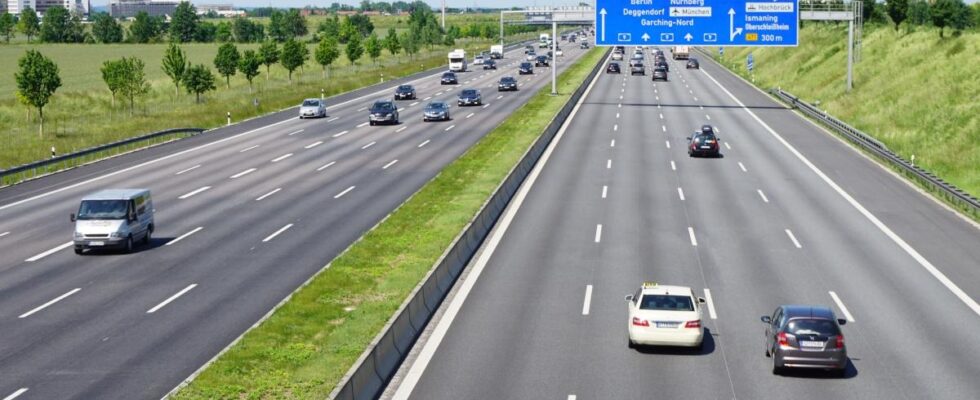Driving fast and having the right to do so is a dream for many motorists, who look with envy at German drivers using the autobahn. But establishing a limitation would have numerous benefits, both financial and ecological, according to this new study.
In most countries around the world, roads and highways are subject to speed limits. In France, it was introduced under the guise of allowing fuel economy in the midst of the oil crisis. But in Germany, some highways let drivers go at whatever speed they want.
A choice which allows powerful vehicles to express their full potential, but which is often put back on the table in public debate, whether because of the risks inherent to varying speeds or ecological issues.
Limiting the autobahn to 130 km/h means saving almost a billion euros
Currently, and as CarbonBrief reports, 96% of German roads are subject to speed limits, and only 30% of motorways benefit from their absence, whether temporary or permanent. The question of reducing speed arises regularly, in particular since the Chancellery committed to decarbonizing transport.
And that’s good, since a new article published in the journal Ecological Economy indicates that introducing a global speed limit on motorways to 130 km/h would save the equivalent of 293 million euros in carbon dioxide emissions. of carbon. The analysis even mentions a “well-being” gain of 951 million euros, a measure made up of the estimated value of travel time, fuel consumption, the number of accidents, CO2 emitted or even the rate of air pollution.
“ We decided to look at the implications of speed limits because it is often said that a speed limit carries an economic cost in terms of lost time. »
The study shows that even if the potential measure has a cost and increases journey times while having an impact on private interests, it would, ultimately, very largely positive consequences. The year 2020 was chosen as a reference, and the study shows that a limitation of 130 km/h would have avoided the emission of 1.5 million tonnes of CO2 into the atmosphere.
Interesting gains, but that’s not for tomorrow
If the subject often comes up in public debate, it is because it pits supporters of the limitation against those opposed to it without an agreement having been reached. Polls show that Germans are mostly in favor of a limitation, but two center-right parties (CDU and FDP) are campaigning to maintain the limit. status quo according to Stefan Gössling, professor at the School of Business and Economics at Linnaeus University and lead author of the article.
Dirk Messner, president of the federal environment office, believes that the transport sector has done little in terms of ecology and taking climate change into account. Statements for the moment brushed aside by Volker Wissing, Minister of Transport, who rejects the idea of limitation and indicates that the State should remain in the background on the subject, speed being the responsibility of citizens.
On the critics’ side, some believe that the study is certainly interesting, but that the potential gains are not enough to justify implementation, recalling in passing a recent report from the federal environment agency:
“According to the latest results from the Federal Environment Agency, a speed limit of 120 km/h would save greenhouse gas emissions equivalent to 6.7 MTCO2e per year, or almost 0. 9% of total greenhouse gas emissions in Germany […] However, we expressly consider that the value of 6.7 MtCO2 is largely overestimated. »
In any case, the implementation of speed limits on all German highways is not for tomorrow, the FDP and the CDU belonging to various coalitions.
Source : CarbonBrief

26